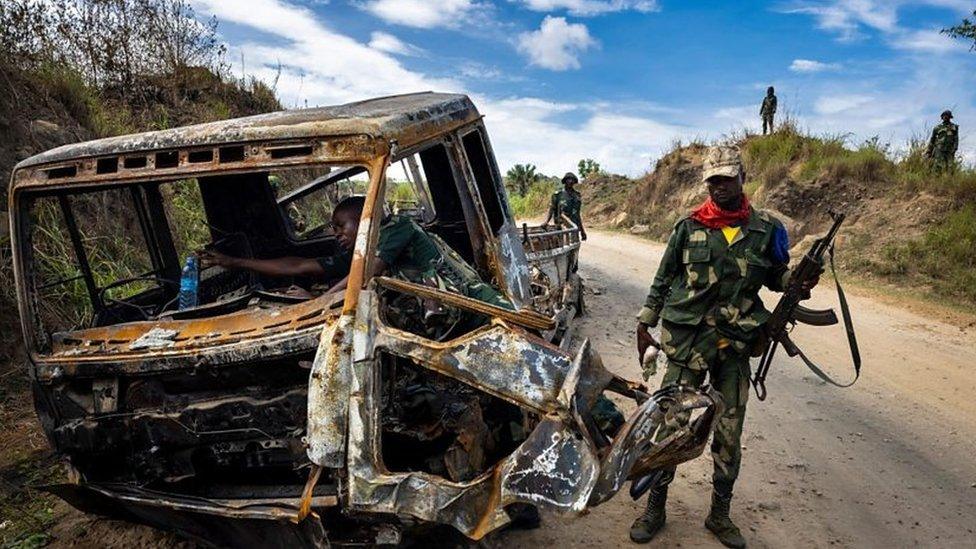Uganda school massacre: Arrests raise murky questions
- Published
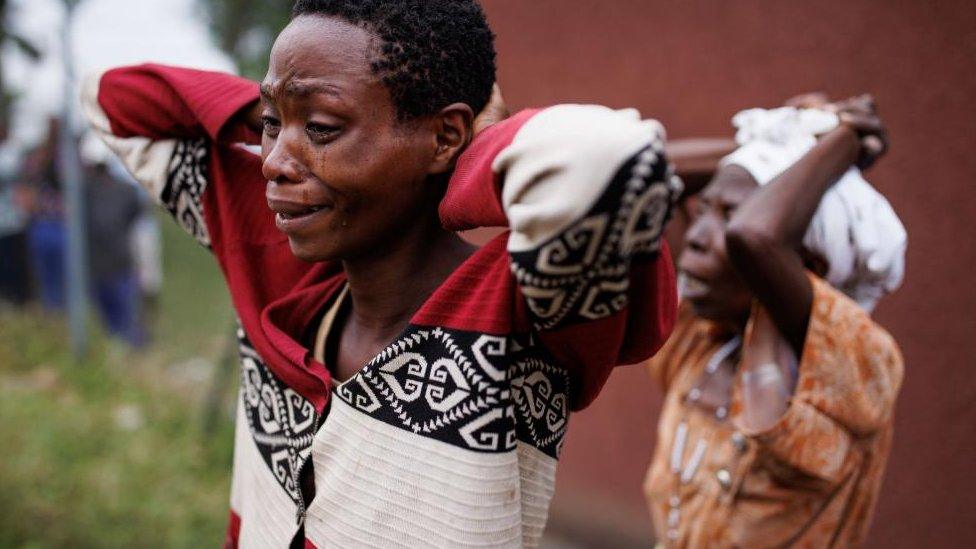
Most of those who died who were students who boarded at the school in western Uganda
More than 20 people arrested in Uganda in connection with Friday's school massacre have been accused of collaborating with the rebel group blamed for carrying out the killings.
Among those held are the director and headteacher, who have not commented.
Officials say there may have been a dispute over the ownership of the school where the 42 people died.
The army say Islamic State-linked militants were behind the attack, but other motives are being investigated.
They belong to the Allied Democratic Forces (ADF), a group created in the 1990s and took up arms against President Yoweri Museveni, alleging persecution of Muslims. It is now largely based in neighbouring Democratic Republic of Congo.
The arrests raise difficult questions about whether locals, and those responsible for the children, had a hand in what happened.
But there is very little clarity.
Thirty-seven pupils were among those killed, when, late on Friday, attackers stormed Lhubiriha Secondary School in the small town of Mpondwe, close to the border with DR Congo.
The victims, many of them staying in dormitories, were burnt or hacked to death, and some were reportedly shot.
Eight people were also abducted. On Tuesday, the authorities said that three - one woman and two boys - had been rescued by the army as they targeted the assailants, killing two of them.
In the immediate aftermath of the attack, army commander Maj Gen Dick Olum said the violence was a way for the ADF to distract his soldiers from their pursuit of the militants inside DR Congo.
A neighbour told the BBC she heard one of the attackers shouting "Allahu Akbar", meaning "God is greatest", and saying: "We have succeeded in destabilising Museveni's country."
According to military intelligence, it is suspected that five ADF militants took part in the attack.
The ADF, which is now linked to the IS group, has not yet said it was behind the attack though it has carried out attacks in Uganda in the past.
While blaming "the terrorists of ADF" for what happened, President Museveni has also talked, without elaborating, about "wrangles" over the school.
First Lady Janet Museveni, who also serves as education minister, said there had been a "conflict" between "groups in [the district of] Kasese who wanted to take it over" and the non-governmental organisation (NGO) that built it.
She pointed out that auditors from the NGO had been at the school the day before the attack, but said on Saturday that a proper investigation was under way.
Ugandan army spokesperson Brig Gen Felix Kulayigye has told the BBC's Newsday programme that along with school officials, two people accused of guiding the attackers "to avoid detection" in Mpondwe have also been detained.
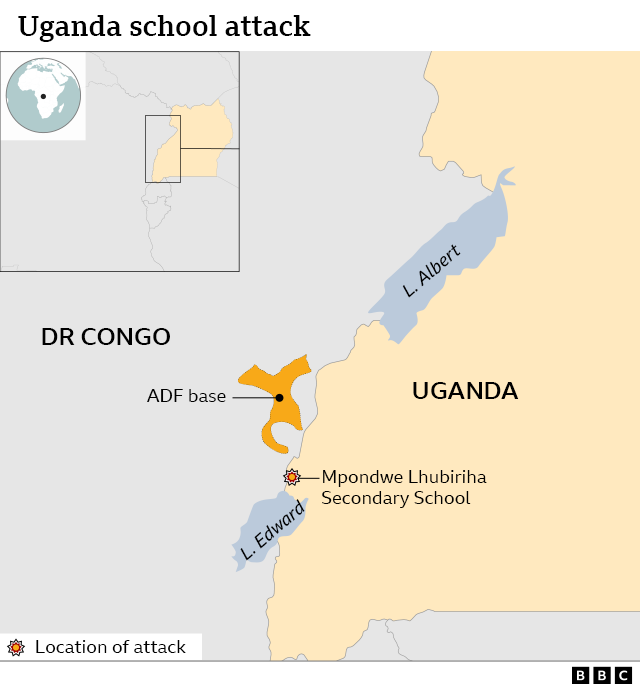

Related topics
- Published20 June 2023
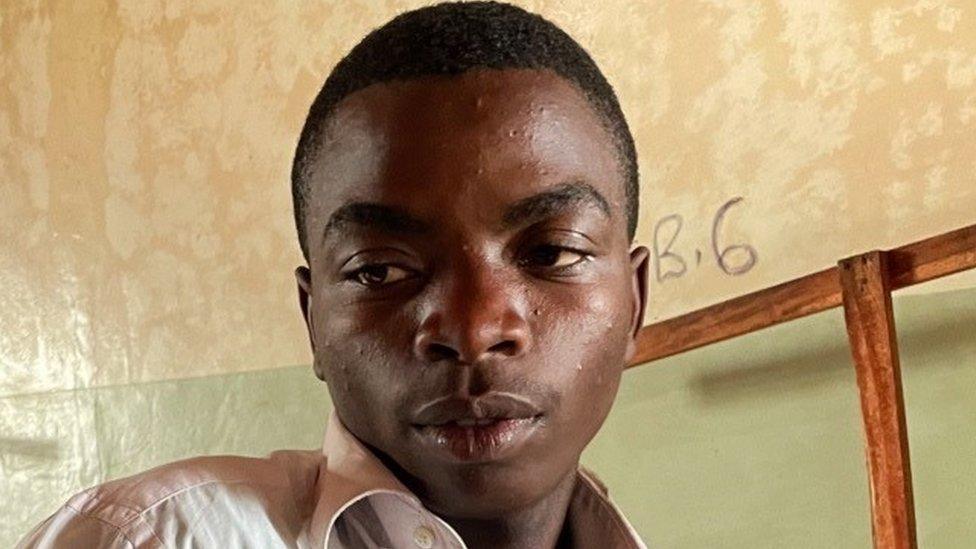
- Published18 June 2023
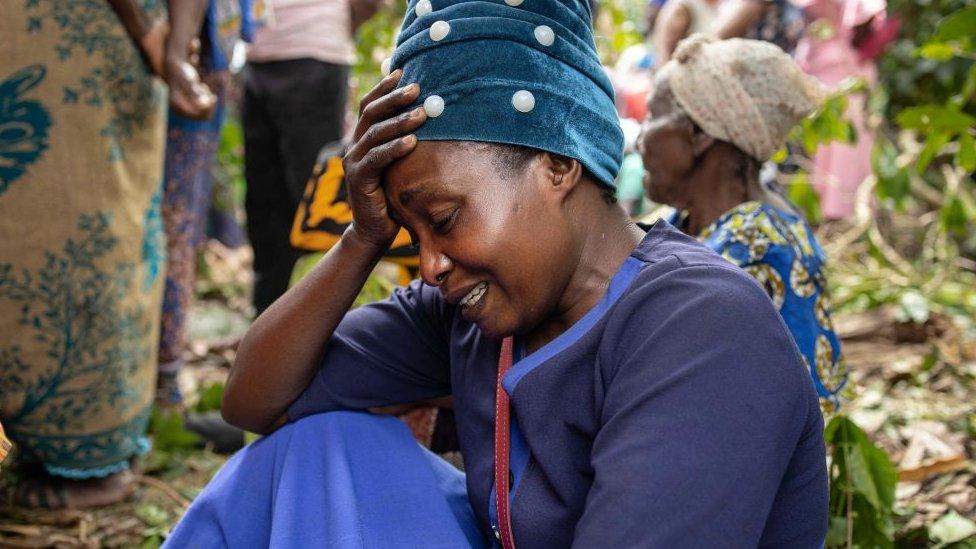
- Published14 June 2021
